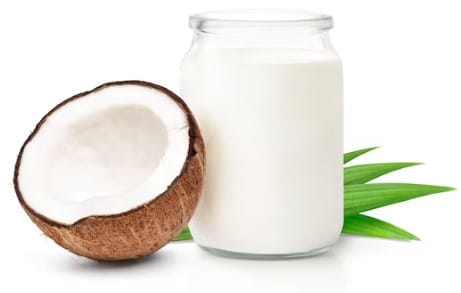

Dogs affected by an allergy to coconut milk may experience digestive symptoms such as vomiting, diarrhea, and flatulence, as well as itchy skin and hives. It is important to note that symptoms can vary from dog to dog and may range from mild to life-threatening.
The cause of dog allergies to coconut milk is normally an intolerance to the proteins found in the milk. Some of the proteins present in coconut milk are not absorbed correctly by some dogs, leading to an allergic reaction manifested in various digestive symptoms, skin irritation, and hives. Coconut milk as an ingredient in dog food may also contain different additives and preservatives that can trigger an allergic reaction in some dogs.
The diagnosis of an allergy in dogs that is caused by coconut milk requires observation of the symptoms for the allergy to be identified. A veterinarian can confirm the presence of the allergy with a physical examination, and may also recommend diagnostic testing such as skin testing or bloodwork to identify the allergen. In some cases, a food elimination trial may be necessary to determine which food or ingredient is causing the allergy.
This allergy can range from mild to severe and can cause serious health complications if left untreated. The mortality rate for dogs with untreated coconut milk allergy is unknown, but it can be potentially life-threatening depending on the severity of the reaction. It is thus important to closely monitor any symptoms associated with this allergy and to seek medical attention as soon as possible.
The treatment for a dog with an allergy to coconut milk will usually involve avoidance of the allergen. If the allergen cannot be completely avoided, then your veterinarian may prescribe a hypoallergenic diet and/or antihistamines to help alleviate the symptoms. Additionally, your veterinarian may suggest certain lifestyle modifications, such as bathing your dog with hypoallergenic soaps or using a humidifier to reduce the risk of allergic reactions. In extreme cases, immunotherapy may also be prescribed.
In order to prevent the allergy from affecting dogs, owners should avoid feeding them products containing coconut milk or any other foods that might contain it as an ingredient. Additionally, they should practice environmental control by regularly vacuuming and shampooing the pet’s bedding to eliminate potential food allergens. It is also important to consult with a veterinarian to rule out any other underlying conditions that might cause similar symptoms.
Dog allergies to coconut milk are not contagious and will not affect humans. While coconut milk allergies can be very serious for those dogs affected, it is important to contact a veterinarian if your pup is exhibiting any symptoms.
There are no home remedies that can be used to treat coconut milk allergies. The best way to manage a coconut milk allergy in dogs is to stop feeding them foods containing coconut milk and to give antihistamines as prescribed by a veterinarian.
While there are some home remedies that may help with dog allergies, it is important to remember that they are not guaranteed solutions. To properly diagnose and treat the allergy, it is best to seek out advice from a qualified veterinarian.
Dog breeds that are particularly vulnerable to coconut milk allergy include Golden Retrievers, Labrador Retrievers, Standard Poodles, German Shepherds, and Huskies. Other breeds, such as Beagles, Bulldogs, Pugs, and Chihuahuas, can also experience allergic reactions to coconut milk. Common symptoms of a coconut milk allergy include skin irritation, persistent itching, redness, and bumps on the skin. In more severe cases, dogs may suffer from anaphylaxis, which can be life-threatening. If your dog is experiencing an allergic reaction to coconut milk, it is important to seek out veterinary care right away.
Has your dog ever experienced an allergy to coconut milk? If so, how did they respond to the symptoms? How did you feel? How did you manage the process? It’s important to consult with a veterinarian to get the best advice on how to treat such allergies and to formulate a plan to help your pet. Lastly, we hope that your dog is feeling better and that you find peace of mind in knowing that you are doing what’s best for your pup.